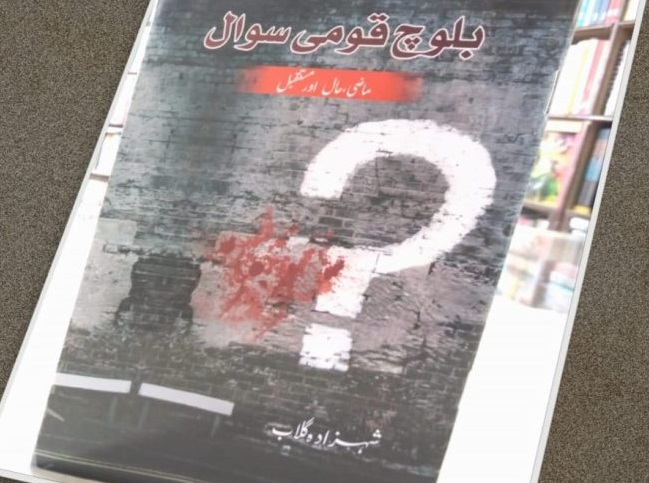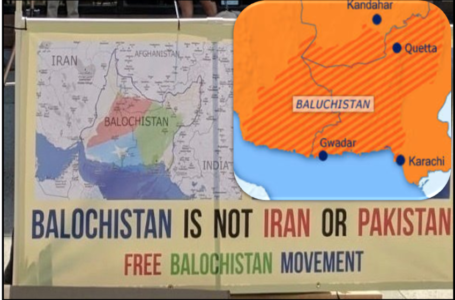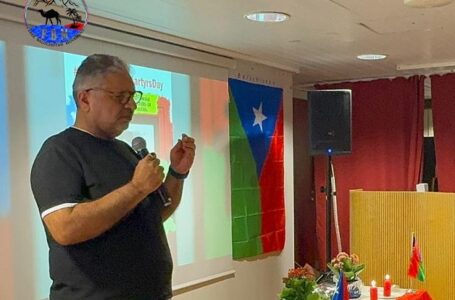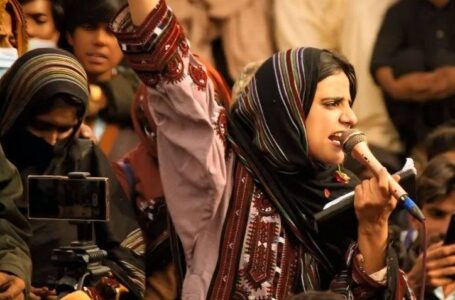Israel’s decisive Attack on Iran a Significant Opportunity for Baloch National Independence: FBM
Book Review: Baloch Qoumi Sawal

By Bakhtawar Baloch
Introduction:
The booklet “Baloch Qoumi Sawal” [Baloch National Question – Past, Present and Future] is a small but commendable and admirable political booklet, written by Shehzada Ghulab in June 2021. It emphasizes the forced occupation of a liberal country Balochistan by a colonialist country Pakistan which used cunning tactics and through conspiracies claimed her governance on the land of beauty Balochistan. This book, briefly and concisely, explains the draconian and abstruse events and the tragedies posed to the Baloch.
Summary:
The booklet clearly explains the feloniousness of the land of pure and her cunning leaders who forcibly occupied a free country Balochistan which declared her liberation from the British on the 11th of August 1947 three days before the creation of the land of Quaid.
However, the objection that author Shehzada Ghulab raises and the question which clicks the mind of readers is “How could a newly born country, Pakistan, having no chance to survive last long, was requisitionist for help from USA and India, occupy a vast land Azad Balochistan (whose existence lasted for centuries)?”
The point is not that Balochistan’s existence was weak and Pakistan’s foundation was strong the loyalty and closeness of Khan of Kalat Mir Ahmed Yar Khan to Governor General of Pakistan Muhammad Ali Jinnah stabbed Balochistan. When Viceroy Lord Mountbatten, on 28th September 1947, to sign 15 years of agreement with Khan, came to Balochistan and wanted Khan to keep this agreement a secret.
However, Khan due to his simplicity discussed it with Jinnah incited and angered Lord Mountbatten and Queen Victoria against Balochistan, allowing Jinnah to conspire against Khan and occupy Balochistan as the British also secretly supported the annexation of Balochistan to Pakistan.
Khan of Kalat instead of objecting to Jinnah on his arrival in Balochistan without permission and to snapat on the enforced annexation of Balochistan, had warmly and adorably welcomed him.
The fraudulency of Jinnah, the coldness and dissension of Khan towards his companions led to the clasp and occupation of Azad Balochistan.
Nevertheless, state crafts awakened the Baloch to fight and struggle hard to get their land back. As Prince Abdul Kareem Ahmedzai brother of Khan when asked to leave Makuran, he started a rebellion in 1948 and along with his sarmachars went to the mountains to resist the forcible occupation and illegal annexation of Balochistan into Pakistan.
On the same token, Baba Nouroz Khan also turned towards the mountains with his Sarmachars. However, baba Nouroz and Prince Kareem were detained and their allies were killed in the name of religion and the Quran.
Similarly, Sher Muhammad Marri also started led Parari Movements against Pakistan’s occupation of Balochistan due to which he was also tortured and detained many times.
For the sake of freedom, the Baloch fought and sacrificed their lives and got independence from the British but a single mistake of Khan changed the fortune of Baloch and Balochistan.
Conclusion:
Baloch Qoumi Sawal, the booklet, puts a glance over the suppressions, cruelties and atrocities faced by the Baloch and the forced annexation of their motherland by the land of Iqbal [Pakistan]. Shehzada Ghulab’s effort Baloch Qoumi Sawal is a welcome reminder to open our minds.









